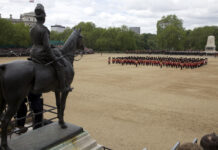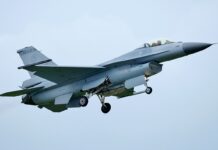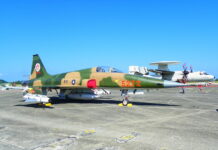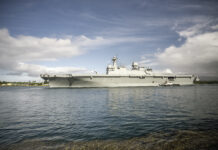‘Mosi II’, the trilateral exercise in South African waters involving the Russian Navy, China’s People’s Liberation Army Navy (PLAN) and the South African National Defence Forces came to an end on 27 February 2023. Despite the prospect being hyped of Russia firing a Zircon hypersonic anti-ship missile during the exercise, such a launch ultimately did not take place
The PLAN’s participation involved its Task Force 42 consisting of the Type 052D-class guided missile destroyer Huainan (hull number 123), the Type 054A frigate Rizhao (598) () and the Type 903 supply ship Kekexilihu (968).
The Russian frigate Admiral Gorshkov, meanwhile (hull number 454) had been on a long-range voyage with the tanker Kama since the end of last year. After a port call in Cape Town on 14/15 February, the frigate arrived in Durban on the morning of 19 February.
In the end South Africa as the host nation only deployed the frigate Mendi, giving some indication of the South African Navy’s current operational capability.
The operational portions of the exercise (from 25-27 February) were reported by the Russian Ministry of Defence on 27 February as follows: “For three days the participants of the exercise worked out the formation of a multinational detachment of warships in the designated area, joint tactical manoeuvring in various formations and combat missions, mine defence tasks at sea crossings with firing at a target simulating a floating mine.” In addition, sea target shooting, hostage rescue, sea rescue and man-overboard drills were part of the exercise schedule. “Several episodes of the exercise involved a Ka-27 naval helicopter aboard the Northern Fleet frigate Admiral of the Soviet Union Fleet Gorshkov,” stated the Russian online communiqué.
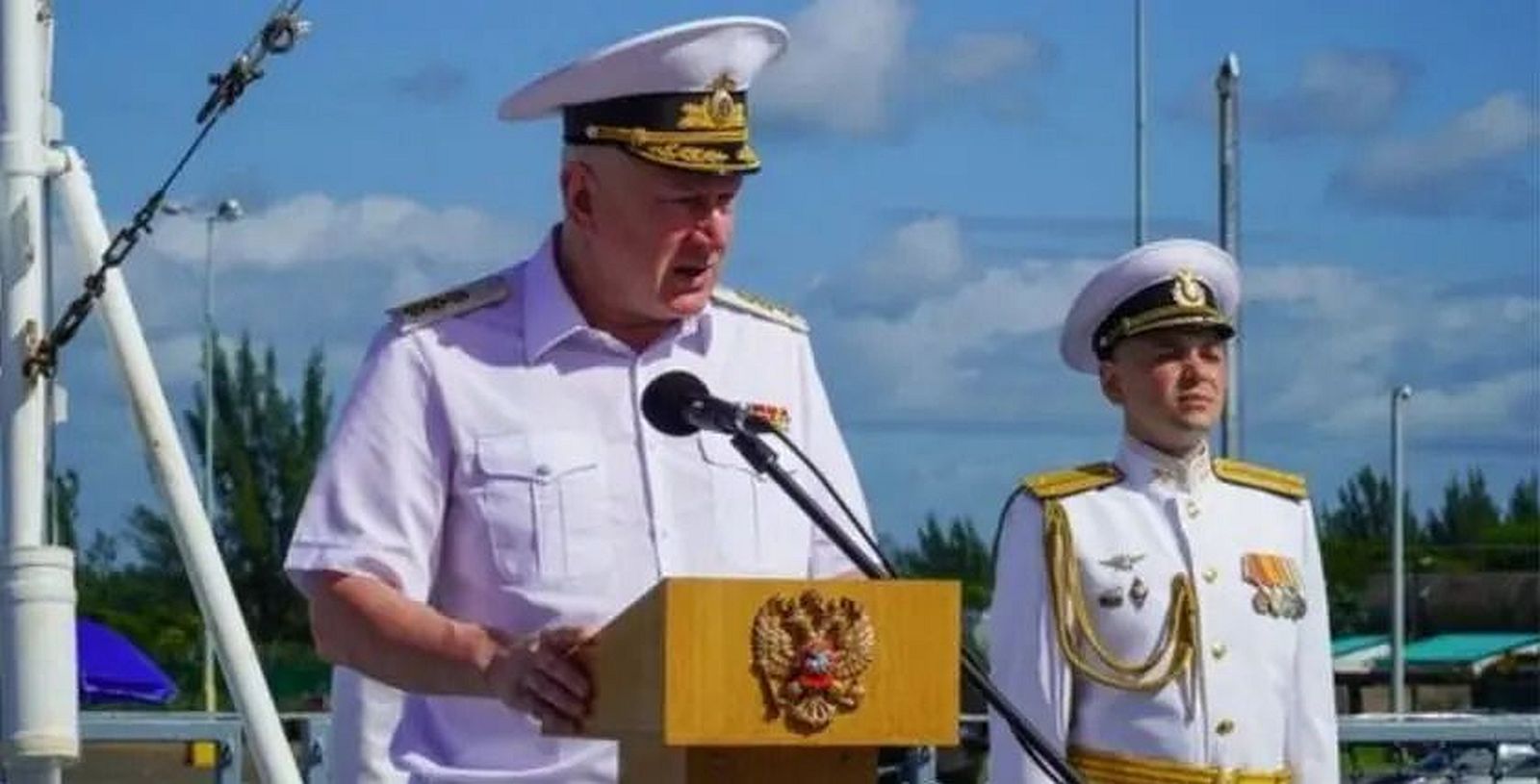
Political considerations – Security policy implications
It was not only the potential firing of a hypersonic weapon that kept international observers busy during the exercise. South Africa’s opposition Democratic Alliance (DA) protested vehemently against the manoeuvres, while the mayor of Cape Town argued against the arrival of Admiral Gorshkov in his city.
Meanwhile, a new bill was introduced for discussion in the US Congress on 21 February that was essentially directed against South Africa and explicitly addressed the exercising of South African forces with those of China and Russia. That Pretoria is not part of the global anti-Russia front became clear with its voting behaviour in relation to Russia’s invasion of Ukraine in the UN General Assembly, where South Africa was among the countries abstaining.
Russia
The conduct of the ‘Mosi II’ exercise highlights the strategic shift taking place on the African continent, and not only in South Africa, with regional observers noting an increase in Russia’s naval presence throughout the Indian Ocean over the past decade. Russia, together with China and Iran, has conducted naval exercises in the northern Indian Ocean, for example, and the expected military base in Port Sudan on the Red Sea will increase Moscow’s strategic reach and presence in Africa and beyond to the Middle East. Russian Wagner Group mercenaries are also deployed in West and Central Africa, not only to fight Islamist groups but also to influence rulers and manipulate them to the Kremlin’s advantage.
Russia thus uses occasions like ‘Mosi II’ as a means of strategic communication. This was reinforced by the presence of the Commander-in-Chief of the Russian Federation Navy, Admiral Nikolai Evmenov, in South Africa’s Richard Bay on the occasion of Russia’s Defender of the Fatherland Day on 23 February.
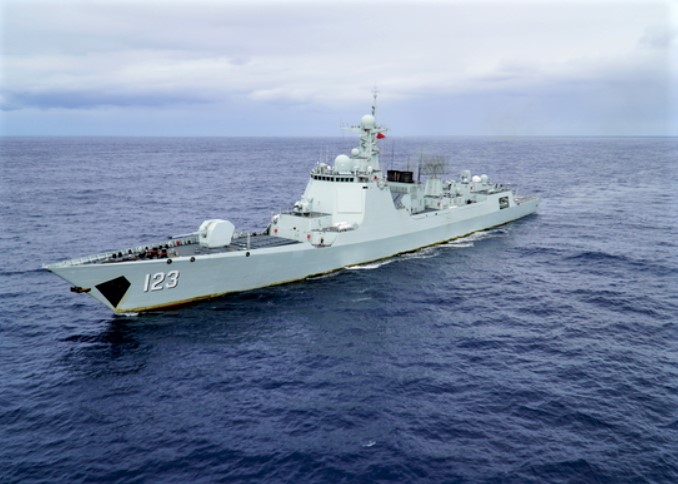
China
‘Mosi II’ is also an example of the growing Chinese naval presence in the Indian Ocean. China has maintained a military base in Djibouti since 2017 and has close relations with countries in the western Indian Ocean such as Kenya, Tanzania and Madagascar. The naval exercises with Russia and South Africa, the expansion of relations with Iran as well as Pakistan, the looming construction of a military base in Gwadar, Pakistan, and the announcement in January 2023 of the building of a spaceport in Djibouti point not just to the growing Chinese presence in the Indian Ocean, but also the creation of unrest in the strategic balance in the Indian Ocean as well as in Africa.
Indian observers assess exercises like ‘Mosi II’ as meaning that geopolitics in the Indian Ocean is heading for more uncertainty and change. The potential Sino-Russian strategic co-operation in the Indian Ocean has geopolitical implications not only for India but also its partners in the Quadrilateral Security Dialogue: Australia, Japan and the United States.
France’s new Africa strategy
In contrast, French President Emmanuel Macron, under a new French Africa strategy unveiled on 27 February, announced that his country’s role in Africa in future would be less about security and military issues. Macron said he wanted a “transition from a logic of aid to a logic of investment in solidarity and partnership”. This will take place over the next few months and will be accompanied by “a visible reduction in our personnel strength and a simultaneous increase in the presence of our African partners in these bases”. France has thus come to perceive its efforts to promote security in Africa as something of a thankless task.
The problem lies deeper
‘Mosi II’ can also be understood as an indication that the isolation of Moscow hoped for by the Western community of states as a result of the invasion of Ukraine in violation of international law is not bearing the expected fruit in the global South. The Kremlin has succeeded in marketing its version in Africa. In the recent vote in the UN General Assembly, for the first time two African states were among the (seven) negative votes. Strikingly, of the 32 abstentions, 14 were from Africa. There were 13 abstainers, six of them African nations.
Even if Russia is in breach of international law, the ‘collective West’ in Africa faces a truth that is as sober as it is drastic: Its proclaimed support for Ukraine, invoking its values-based order, is denied. The rules-based system is questioned because it is not consistently applied from an African perspective and the experiences the Black Continent has had with it.
In this respect, a more fundamental problem is revealed at the core. In the future, it is to be expected that the global South will view the application of our rule-based system more critically. Conversely, the success of the political work of the collective West will go hand in hand with coherence in its application. Beyond military or operational lessons, this could be the most important lesson from ‘Mosi II’.
With regard to Africa, there should be a shift from a donor mindset to a true partnership, where commonalities are identified and clued into a strategic agenda.
Hans Uwe Mergener




